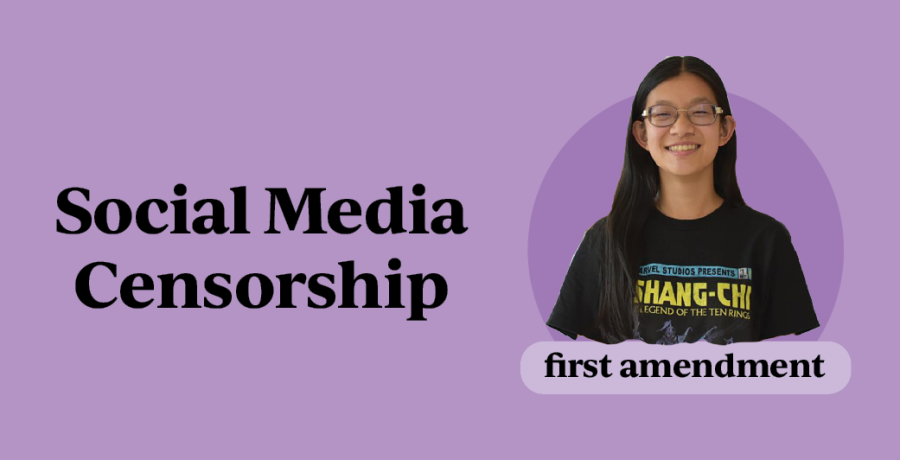In our current era of hyper partisanship, the Democrats and Republicans have united over a simple objective: banning TikTok.
On March 7, senators Mark Warner (D-VA) and John Thune (R-SD) proposed the RESTRICT Act, a comprehensive bill which would give the Commerce Department authority to review and prohibit any transaction by information, technology or communications companies that are owned or could be influenced by foreign adversaries. Endorsed by the White House, the bill could be used to ban TikTok.
Even though I rarely use TikTok, I stand firmly against a ban. Passing a law such as the RESTRICT Act or issuing an executive order to ban TikTok in the United States would go against our First Amendment guarantee to free speech. The app is used by more than 150 million people in the U.S., allowing users to post and receive all sorts of content, from funny cat videos to breaking news briefs. The Supreme Court has also ruled before that the First Amendment protects the right to receive information and ideas. If the government were to actually ban TikTok, they would be censoring, or enacting prior restraint, on the app and all of its users.
More importantly, the RESTRICT Act is vague and the implications can go beyond TikTok. Its broad language has led experts to claim it could outlaw the use of VPNs, even though the bill’s sponsor says that is not the legislation’s intention. Furthermore, this sort of bill would set a precedent that the government should be allowed to restrict the flow of information online, which is a dangerous overreach of power.
Though the possible TikTok ban has become sensationalized, there are legitimate reasons to be concerned about data privacy. According to the HIPAA Journal, tech firms are collecting huge amounts of private information with little restrictions on how consumer data can be used and shared. The proposed TikTok bans would fail to address the actual issue at hand; nowhere in the RESTRICT Act does the bill address domestic data privacy issues and federal data regulation.
Instead, the government should work on passing the American Data Privacy and Protection Act (ADPPA), the draft of which will be released soon. This bill would enact a comprehensive consumer data privacy law requiring companies to only collect relevant data and holding them responsible for preventing harmful uses of sensitive data. Unlike the RESTRICT Act, the ADPPA would actually protect consumers’ data without a possible overreach of power and likely ban of TikTok.































![British royalty are American celebrities [opinion]](https://hilite.org/wp-content/uploads/2024/03/Screenshot-2024-03-24-1.44.57-PM.png)




















![Review: “The Iron Claw” cannot get enough praise [MUSE]](https://hilite.org/wp-content/uploads/2024/04/unnamed.png)
![Review: “The Bear” sets an unbelievably high bar for future comedy shows [MUSE]](https://hilite.org/wp-content/uploads/2024/03/unnamed.png)
![Review: “Mysterious Lotus Casebook” is an amazing historical Chinese drama [MUSE]](https://hilite.org/wp-content/uploads/2024/03/0.webp)
![Thea Bendaly on her Instagram-run crochet shop [Biz Buzz]](https://hilite.org/wp-content/uploads/2024/03/IMG_0165-1200x838.jpg)
![Review: Sally Rooney’s “Normal People,” is the best book to read when you are in a time of change [MUSE]](https://hilite.org/wp-content/uploads/2024/03/20047217-low_res-normal-people.webp)
![Review in Print: Maripaz Villar brings a delightfully unique style to the world of WEBTOON [MUSE]](https://hilite.org/wp-content/uploads/2023/12/maripazcover-1200x960.jpg)
![Review: “The Sword of Kaigen” is a masterpiece [MUSE]](https://hilite.org/wp-content/uploads/2023/11/Screenshot-2023-11-26-201051.png)
![Review: Gateron Oil Kings, great linear switches, okay price [MUSE]](https://hilite.org/wp-content/uploads/2023/11/Screenshot-2023-11-26-200553.png)
![Review: “A Haunting in Venice” is a significant improvement from other Agatha Christie adaptations [MUSE]](https://hilite.org/wp-content/uploads/2023/11/e7ee2938a6d422669771bce6d8088521.jpg)
![Review: A Thanksgiving story from elementary school, still just as interesting [MUSE]](https://hilite.org/wp-content/uploads/2023/11/Screenshot-2023-11-26-195514-987x1200.png)
![Review: When I Fly Towards You, cute, uplifting youth drama [MUSE]](https://hilite.org/wp-content/uploads/2023/09/When-I-Fly-Towards-You-Chinese-drama.png)
![Postcards from Muse: Hawaii Travel Diary [MUSE]](https://hilite.org/wp-content/uploads/2023/09/My-project-1-1200x1200.jpg)
![Review: Ladybug & Cat Noir: The Movie, departure from original show [MUSE]](https://hilite.org/wp-content/uploads/2023/09/Ladybug__Cat_Noir_-_The_Movie_poster.jpg)
![Review in Print: Hidden Love is the cute, uplifting drama everyone needs [MUSE]](https://hilite.org/wp-content/uploads/2023/09/hiddenlovecover-e1693597208225-1030x1200.png)
![Review in Print: Heartstopper is the heartwarming queer romance we all need [MUSE]](https://hilite.org/wp-content/uploads/2023/08/museheartstoppercover-1200x654.png)























![Review: Ladybug & Cat Noir: The Movie, departure from original show [MUSE]](https://hilite.org/wp-content/uploads/2023/09/Ladybug__Cat_Noir_-_The_Movie_poster-221x300.jpg)

![Review: Next in Fashion season two survives changes, becomes a valuable pop culture artifact [MUSE]](https://hilite.org/wp-content/uploads/2023/03/Screen-Shot-2023-03-09-at-11.05.05-AM-300x214.png)
![Review: Is The Stormlight Archive worth it? [MUSE]](https://hilite.org/wp-content/uploads/2023/10/unnamed-1-184x300.png)


